SPECIAL REPORT: Sale of ‘coronavirus’ mask in Accra goes up by 1000%
The deadly Wuhan coronavirus, now known as COVID-19, may be a catastrophe, but for importers of face masks, it is ‘cash in time,’ theghanareport.com has found.
Theghanareport.com visited some 10 shops on March 3 in Accra, where the masks are sold, to track the business of selling the masks.
The lowest price per box in December 2019 was GH¢9. But by March, three months into the outbreak, a box is selling for as high as GH¢100 – more than a 1000% increase.
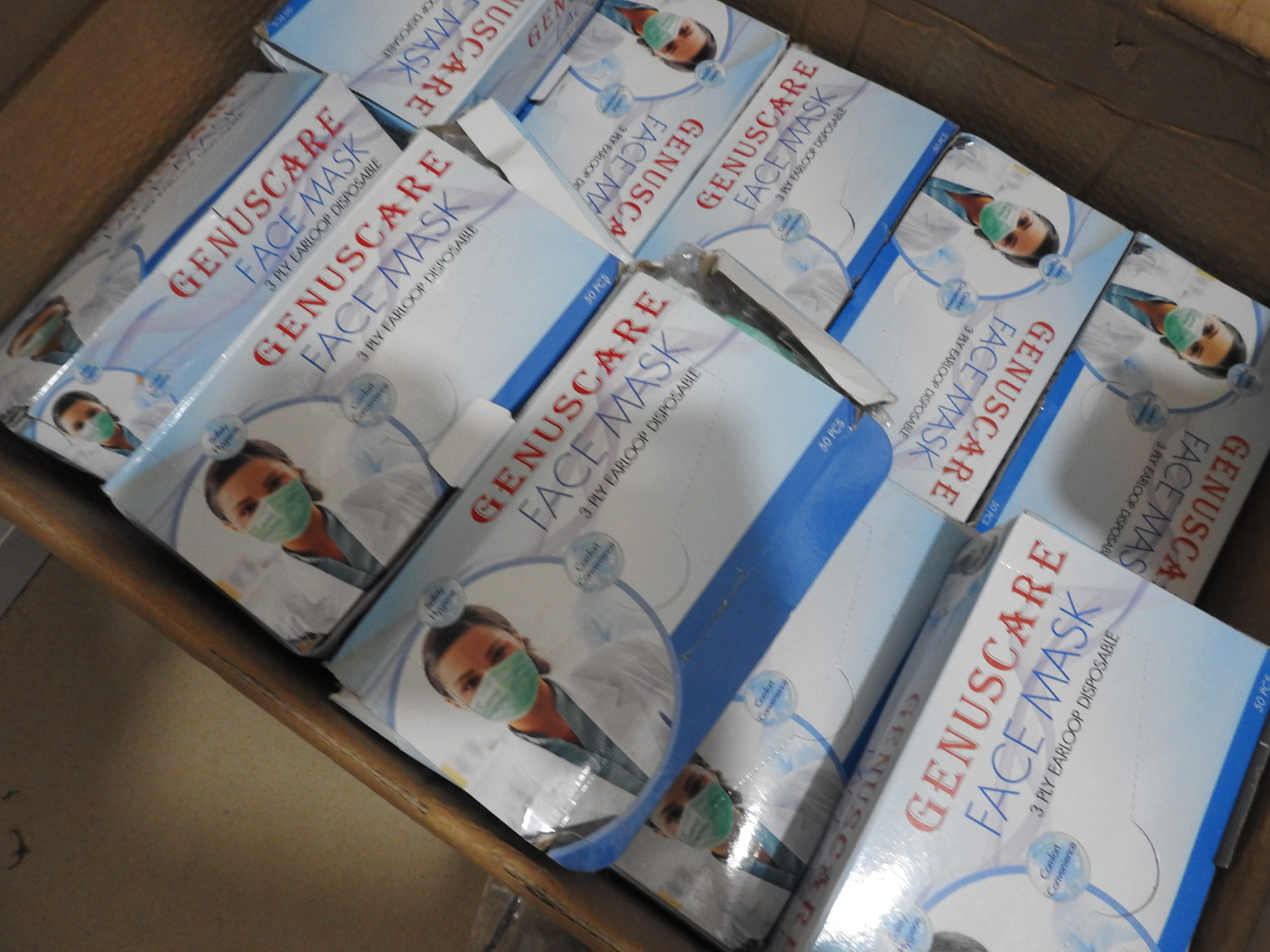
The origin of the infection and worst-hit country, China, is the one gifting importers huge sums of money.
Asian nationals in Ghana, particularly Chinese, have triggered a high demand for masks as they buy large quantities of the product and ship it to their families back home, theghanareport.com has found.
Dealers in pharmaceutical products at Okaishie pointed out to the reporter that production of the mask in China had slowed because of a lockdown of cities to contain the spread of the virus. This lockdown has resulted in a slump in economic activities.
Man who died in Kumasi tested negative for coronavirus – Health Service
The masks were sold primarily by dealers in medical consumables, but the scarcity and the high prices have compelled pharmacies in Accra to jump into the business to generate money.
When theghanareport.com visited the Central Business District of Accra, a hub for pharmaceutical and surgical goods, only two of the 10 shops had the product which is now scarce.
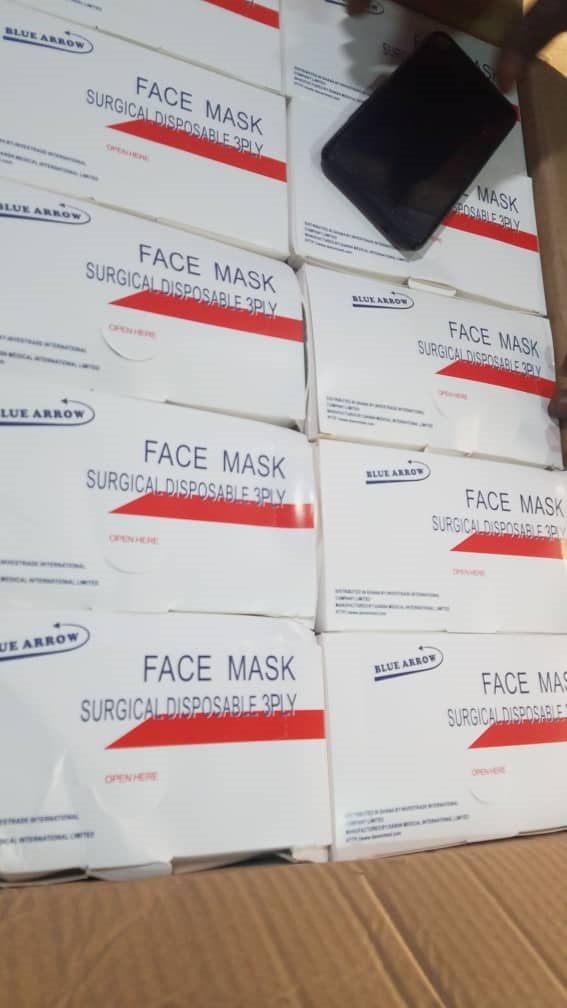
Out of the two shops, one had only a carton which contained about 50 boxes stuffed with 20 masks in each box. The other had only a few boxes reserved for loyal customers and health professionals from Ghanaian health facilities in need of protective gear.
Coronavirus: Not necessary for everyone to wear mask – Health Service
A box of the product cost as low as GHC 8, as at December 2019, before the outbreak. However, it is now as high as GHC 100 for the same box. Prices climbed from GHC 20 at the end of January 2020 after the coronavirus started its fast spread in Wuhan, China.
Ghanaians form a minority of clientele who purchase the product.
Ghana is yet to record a case. However, six African countries—Egypt, Algeria, Tunisia, Nigeria, Morocco, and Senegal—have recorded positive results for the virus. The global surge has compelled some Ghanaians to take proactive steps to protect themselves by wearing a protective mask.
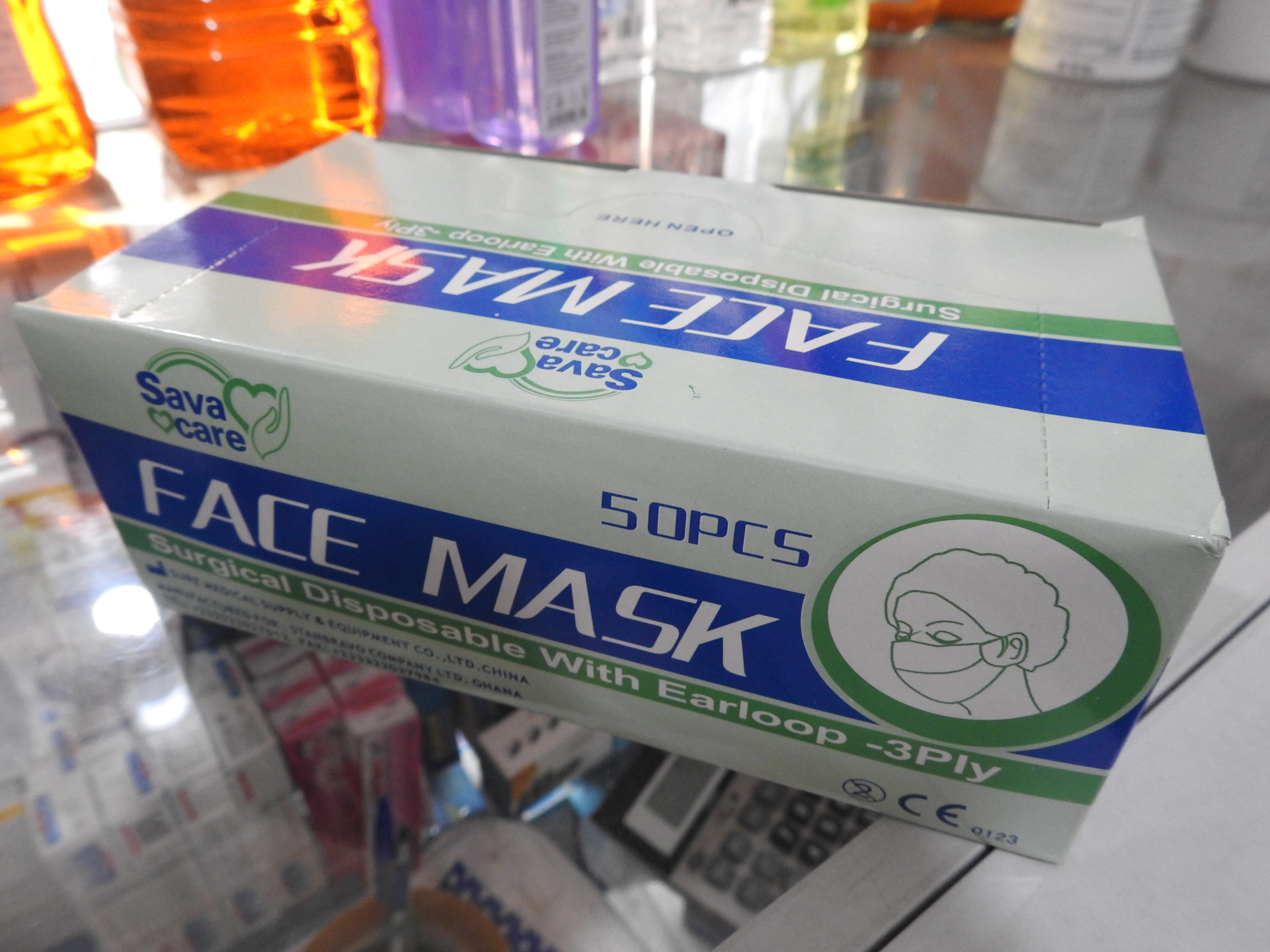
Selina Koomson is one of the few dealers with stocks of masks at her K. S. Surgical Shop.
She told theghanareport.com, “the demand is high, very high”.
Prior to the outbreak, she sold one box for just 12 GHC but the same item now costs between GHC 85 to GHC 90 for a pack which contains 50 pieces.
Between 2019 and the first week of January 2020, she was selling on average 20 cartons monthly. A carton contains 40 boxes with 50 masks in each box. She could now sell up to 50 cartons daily, with demand as high as 250 cartons each day.
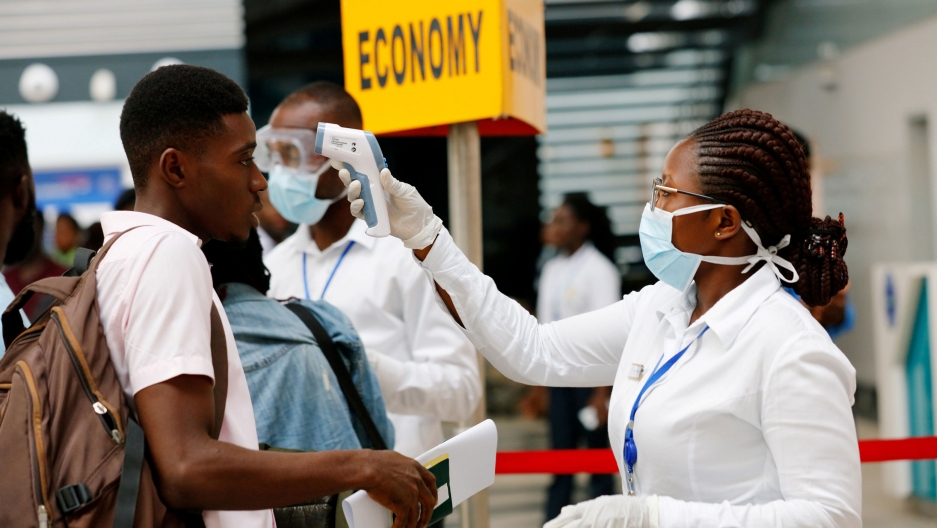
She was very concerned that Ghana could not manufacture the product and depend on foreign countries. That, she said, was affecting prices, with importers dictating sales and making the most of the gains.
Within the 15 minutes theghanareport.com spent at her shop, three customers walked in to buy seven boxes of the masks.
A.G. Watas Company Limited was another shop that had stocks, but limited.
The owner of the shop, Anayo-Ozor Watas, confirmed that the mask was in a period of peak demand. His product was GHC12 to GHC 15 per pack, but GHC 80 to GHC 100 now.
He said the product was scarce, and he was now left with a carton he had reserved for some people from maternity departments, Community-Based Health Planning and Services (CHPS) compounds and other health facilities that normally came to buy a few pieces.
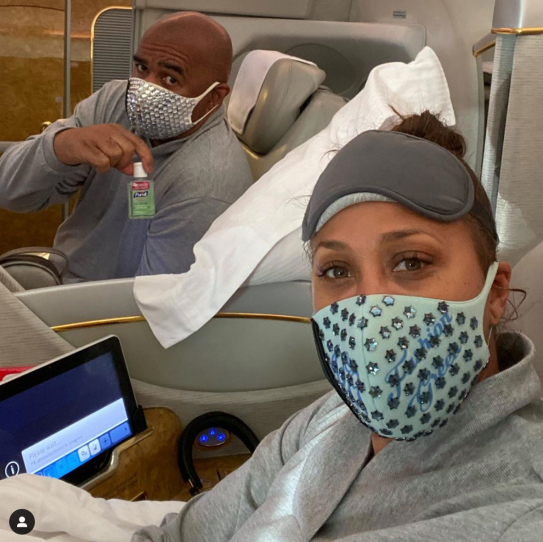
“Now you can’t even get. Someone ordered 1000 cartons from me, but I can’t get it,” he complained, adding that” all the Chinese here are buying and sending it to their family back home”.
His suppliers from Turkey have run out of stock while his agents in the US have doubled their prices. Besides shipping costs to Ghana, the final price of the product, he said, would be expensive.
At Sarkuff Pharmacy Limited, shop attendant, Kennedy Asante, disclosed that they have run out of the product.
“People are really buying a lot lately… for the demand it is very high,” he revealed.
Initially, the rate of purchase was slow, and they had a lot of masks at the shop. However, in the last two weeks, they could not get the product from the wholesalers and importers.
The last batch of products he sold was GHC 50 for a box, which was GHC 9 initially. The last request from a client was for 100 cartons, which he said he couldn’t meet.
“Because they are not importing (that much), we are not getting some to buy,” he lamented.
On average, the pharmacy sold three cartons a day in February.
“There is no coronavirus in Ghana now so they are exporting,” he told theghanareport.com about the destination of the products they sold to clients.
“I met one guy who said he wants 100 cartons. Come on, where do you expect me to get 100 cartons,” he questioned.
Mr Leslie Alabi, who runs Hope Pharmacy, was late to the party as the early bird pharmacies made enormous profits in recent weeks before he joined the bandwagon.
“Other pharmacies have made much gains,” he confessed.
He said the pharmacy’s clientele are Chinese and Indians who bought to export to their countries and other affected areas.
The protective masks were GHC 13 for a box but are now for GHC 75.
“Now it is difficult to get it in bulk and the ones that are available are being sold at exorbitant prices,” he expressed concerns.
The situation is, however, different from isolated pharmacies at different geographical locations. Even though the rate of purchase has soared, the needs of the buyers are usually small.
Such is the case at the First Royal Kyris Pharmacy at Asylum Down.
It is situated in a cosmopolitan neighbourhood which has residents from various countries, including Togo, Cote d’Ivoire, and European countries.
A pharmacist, Mrs Vanessa Opare, told theghanareport.com, “Before COVID-19, purchase of face masks wasn’t all that upfront, but recently people buy more for themselves as well and their workers”.
She said the price of a piece of face mask had not changed and sold at 50 pesewas for one, even though the frequency of purchase high had shot up drastically.
“At first I could stock only two boxes of 50 pieces maybe for the whole year, but now people are buying more,” she said.
The gainers are the importers who are “making money”, she added. Just two weeks ago, a firm came for a whole box of about 20 face masks from her shop.
The mad rush for masks is not limited to Ghana as a worldwide online shopping portal, Amazon records large sales.
Keepa, which tracks the prices of items sold on Amazon, shows that a 10-pack of 3M N95 respirators that sold for $18.20 roughly a month ago now costs $99.99. One Amazon seller was offering 30 pack of 3M N95 respirators for $198.98. On eBay, a two-pack of 3M N95 face masks are available for $59.99. Other retailers typically sell a pair of masks for less than $6 but are out of stock.
The N95 respirator is considered one of the most effective in filtering particles and disease-causing organisms in the air.
Face masks might not entirely protect an individual from contracting the deadly Wuhan coronavirus, and the Ghana Health Service has said the rush for face masks in Ghana was premature.
About 41 tested cases tested have all proven negative across the country.
The US Surgeon General, Dr Jerome Adams, made a similar appeal in the United States, where the mask is reportedly disappearing fast in pharmacies.
So far, the UN has released US$15 million from the Central Emergency Response Fund (CERF) to WHO and UNICEF to help fund global efforts to contain COVID-19.
A team of experts from WHO and the European Centre for Disease Prevention and Control (ECDC) has been dispatched to Italy, which has become a source of spread for countries in Europe.
So far, 76 countries and territories have been hit by the disease globally.
Church of Pentecost in Koforidua serves communion with toothpick over coronavirus fears



